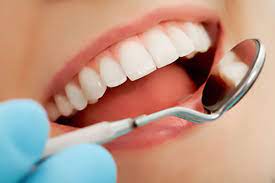When it comes to replacing missing teeth, dental implants and dentures are two of the most common solutions available. While both have their own unique benefits, they cater to different needs and preferences. Choosing between dental implants and dentures can be a difficult decision, especially with so much information to sift through. This article will provide an in-depth comparison of these two options, exploring their advantages, the Dental Implants Dubai process, and essential post-care tips, so you can make an informed choice based on your personal needs.
What Are Dental Implants and Dentures?
Before diving into the specifics of each option, it's important to understand what dental implants and dentures are.
Dental implants are titanium posts that are surgically placed into the jawbone to replace the roots of missing teeth. Once the implants fuse with the bone, custom-made crowns are placed on top, giving a natural and durable solution for tooth loss. This option requires a multi-step process but provides a permanent solution that mimics the function and appearance of natural teeth.
On the other hand, dentures are removable prosthetic devices designed to replace missing teeth. They can be full dentures (replacing an entire set of teeth) or partial dentures (replacing a few missing teeth). Dentures rest on the gums and rely on suction or adhesives to stay in place. They are non-invasive and can be adjusted as needed, offering a temporary or long-term solution.
The Treatment Process: A Step-by-Step Guide
For dental implants, the process typically involves several stages. First, the implants are surgically placed into the jawbone, followed by a healing period that allows the implants to integrate with the bone. Once this fusion, called osseointegration, is complete, a crown is created to match the appearance of your natural teeth. This process can take several months but results in a permanent, sturdy solution.
Dentures, in contrast, are a quicker solution. After an initial consultation, impressions of the mouth are taken, and a customized set of dentures is created. This can usually be done within a few weeks, and once ready, the dentures are fitted. Unlike implants, dentures are not surgically placed but are instead designed to fit comfortably over your gums. While they can take a little time to get used to, dentures provide immediate results without the need for invasive surgery.
Benefits of Dental Implants
Dental implants offer several advantages over dentures. First and foremost, they are permanent. With proper care, implants can last for decades, providing a long-term solution for tooth loss. They also function just like natural teeth, allowing you to eat, speak, and smile confidently without worrying about slipping or discomfort. Additionally, dental implants help preserve the jawbone by stimulating it, preventing bone loss that often occurs with missing teeth.
Another key benefit is that dental implants require little maintenance. Once the crowns are placed, there are no special cleaning requirements beyond regular brushing and flossing. This makes them a low-maintenance option compared to dentures, which need to be removed and cleaned daily.
Benefits of Dentures
Dentures offer a more accessible and affordable option for many people. They are non-invasive and can be a suitable choice for individuals who may not be eligible for dental implants due to insufficient bone density or other factors. Dentures are also highly customizable, with a range of styles and materials available to suit different preferences and budgets.
One of the biggest benefits of dentures is their versatility. They can be used to replace a full set of teeth or just a few missing teeth, providing a flexible solution for various levels of tooth loss. For individuals seeking a quicker, non-surgical option, dentures are an excellent choice.
Post-Treatment Care: What You Need to Know
Taking care of your dental implants and dentures is essential for ensuring their longevity and maintaining oral health. For dental implants, it’s crucial to practice good oral hygiene, including brushing and flossing regularly to keep the implants clean and free of plaque. While the implants themselves don’t require any special care, the surrounding gums and natural teeth should be maintained to ensure the overall health of your mouth.
Dentures require a bit more attention. They should be removed every night to allow your gums to rest, and they need to be cleaned thoroughly to avoid plaque buildup and bad odors. Dentures should be soaked in a cleaning solution overnight, and regular checkups are essential to ensure they fit correctly and don’t cause irritation.
Which Option Is Right for You?
When deciding between dental implants and dentures, the best choice depends on your individual needs, lifestyle, and oral health. Dental implants are ideal for those seeking a permanent, durable solution with minimal maintenance. They are particularly suited for individuals who have sufficient bone density and are willing to undergo the surgical procedure. If you're looking for a solution that Dental Implants in Dubai offers long-term benefits and can restore your smile and function, dental implants may be the better choice.
On the other hand, dentures may be more suitable for individuals who need a quicker, more affordable solution. They are especially beneficial for people who may not be candidates for implants due to medical or financial reasons. Dentures also provide an easy, non-invasive solution for those with extensive tooth loss who may not be ready for surgery.
Conclusion
Choosing between dental implants and dentures ultimately comes down to your specific needs and preferences. Dental implants provide a permanent, low-maintenance solution that closely mimics the function of natural teeth, while dentures offer a quicker, more affordable option that is removable and adjustable. Both options can help restore your smile and improve your quality of life, but understanding the differences between them is key to making the best choice for your oral health. Be sure to consult with a dental professional to explore your options and determine which solution is right for you.





Comments